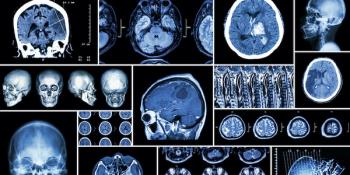
Researchers developed a test to better determine which children will develop type 1 diabetes (T1D), moving closer to routine testing for newborns and potentially avoiding the risk of life-threatening complications.
Gianna is an associate editor of The American Journal of Managed Care® (AJMC®). She has been working on AJMC® since 2019 and has a BA in philosophy and journalism & professional writing from The College of New Jersey.

Researchers developed a test to better determine which children will develop type 1 diabetes (T1D), moving closer to routine testing for newborns and potentially avoiding the risk of life-threatening complications.

A study based on real-world data collected from the West German Headache Center at the University Hospital Essen, Germany, concluded erenumab appears to be a promising treatment option for patients with highly therapy-refractory migraine.

Results from a large population-based cohort study, published in Arthritis Care & Research, found individuals with rheumatoid arthritis (RA) had a lower rate of incident type 2 diabetes (T2D) compared with the general non-RA population and cohorts with with hypertension, osteoarthritis (OA), and psoriatic arthritis (PsA).

New study results published in JAMA Ophthalmology suggest researchers can leverage big data to triage ophthalmic clinic appointments, balancing the glaucoma progression risk against the morbidity risk from coronavirus disease 2019 (COVID-19) exposure during ophthalmic care.

Life expectancy trends in the United States "paint a troubling portrait of life and death," according to a new study published in The Milibank Quarterly. State policies have played an important role in the stagnation and recent decline in life expectancy.

Throughout the country, rising cases of coronavirus disease 2019 prove stressful for individuals most at risk of dying from the disease, including those with underlying conditions such as diabetes. Compounding this issue, new results from a study published in Psychoneuroendocrinology show the stress hormone cortisol is associated with higher blood sugar levels in individuals with type 2 diabetes (T2D), suggesting cortisol plays a detrimental role in contributing to glycemia in this population.

Ranibizumab, in combination with prompt verteporfin photodynamic therapy, is more effective in treating polypoidal choroidal vasculopathy compared with ranibizumab monotherapy, according to a study published in JAMA Ophthalmology.

Chronic migraine (CM) may be associated with widespread disruption of normal white matter (WM) integrity in the brain, according to a study published in The Journal of Headache and Pain.

Bristol Myers Squibb and bluebird bio submitted a second Biologics License Application (BLA) to the FDA for idecabtagene vicleucel (ide-cel), the companies’ investigational B-cell maturation antigen–directed chimeric antigen receptor (CAR) T-cell immunotherapy, indicated for adults with relapsed and refractory multiple myeloma (MM).

Insulin cost-sharing caps may benefit children and young adults with type 1 diabetes (T1D), according to new research published in JAMA Pediatrics.

Using automated spectral-domain optical coherence tomography, researchers found the presence of subretinal fluid (SRF) in individuals with diabetic macular edema (DME) is associated with lower baseline best-corrected visual acuity. The findings of this retrospective study suggest automated quantification of intraretinal fluid and SRF may be an objective approach to assess DME treatment.

When it comes to ease of use, ability to self-inject, and confidence in using an erenumab-prefilled disposable autoinjector, individuals with migraine consistently endorsed the preventive treatment, according to study results published in Patient Preference and Adherence.

Sodium-glucose cotransporter 2 (SGLT2) inhibitors are associated with an almost 3-fold increased risk of diabetic ketoacidosis (DKA) in some patients with type 2 diabetes (T2D), according to data from a retrospective cohort study published in Annals of Internal Medicine.

A comprehensive review of all safety-related label modifications of vaccines approved by the FDA between January 1996 and December 2015 found that vaccines are “remarkably safe” and confirmed population vaccination as a major public health strategy.

In patients with episodic migraine, erenumab provided sustained efficacy for the condition over the course of 1 year, according to new results from a study to evaluate the efficacy and safety of erenumab in migraine prevention (STRIVE), published in Neurology.

IQVIA, a health information technology and clinical research company, recently announced a new collaboration with JDRF, the world’s largest nonprofit funder of type 1 diabetes (T1D) research. Together, the companies plan to develop a real-world research platform to facilitate evidence generation for T1D via non-identified patient-level data and analytics.

Intensity of headache pain is as important as frequency when evaluating the clinical response and impact of migraine preventive treatment with OnabotulinumtoxinA on patient headache-related disability, according to a recent study.

Current existing research highlights the important association between the increased risk of suicidal behaviors among chronic migraineurs with and without aura, in both the clinical and general population worldwide, according to a systematic review published in Frontiers in Neurology.

Anti-vascular endothelial growth factor (VEGF) therapy may be useful for patients with retinal nonperfusion, as the treatment does not exacerbate the nonperfusion, according to a study published in JAMA Ophthalmology.

Positive genetic correlations of migraine with diastolic blood pressure (BP) and systolic BP exist, supporting the notions that diastolic BP plays a critical role in migraine susceptibility and BP and migraine share underlying biological mechanisms, according to a study published in Nature Communications.

Recent CDC data show that a record number of drug overdose deaths occurred in the United States last year, following a dip in 2018. To help improve access to and ease utilization of recovery support systems, Shatterproof, a nonprofit organization committed to reversing the addiction crisis, today launched an Addiction Treatment Locator, Assessment, and Standards Platform (ATLAS).

Children with type 1 diabetes (T1D) have a less desirable gut microbiome composition, potentially contributing to the development of the disease, according to new research published in the Journal of Clinical Endocrinology & Metabolism.

Epimacular brachytherapy does not reduce the number of ranibizumab injections required by patients with chronic, active neovascular age-related macular degeneration (ARMD), and it is associated with worse visual acuity compared with anti-vascular endothelial growth factor (VEGF) treatment alone, according to a study published in JAMA Ophthalmology.

Even in individuals who don't have diabetes, hyperglycemia is an independent risk factor for COVID-19 mortality after 28 days of hospitalization, according to a study published in Diabetolgia.

Facedown positioning following surgery is not more likely to close large (≥400 mcm) macular holes compared with seating faced forward, according to a study published in JAMA Ophthalmology. However, visual acuity outcomes may be superior when patients are placed facedown after surgery.

The direct effect of childhood trauma on migraine is outweighed by the mediation effect of adulthood attachment, according to a study published in the International Journal of Environmental Research and Public Health.

Following an announcement that hospitals are to bypass the CDC and send all coronavirus disease 2019 (COVID-19)–related information to a central database, questions have been raised as to the future of COVID-19 data transparency and politicization.

A combination of machine learning and random optimization may aid in predicting medication overuse in migraineurs, if clinical/biochemical features, drug exposure, and lifestyle are taken into consideration, according to a study published in Computational and Structural Biotechnology Journal.

Subclinical changes in retinochoroidal vasculature occur in obese individuals, according to a study published in PLoS ONE. Surgical intervention, such as bariatric surgery, may have a favorable outcome on the choroidal thickness in these patients’ eyes.

States currently facing a surge of coronavirus disease 2019 (COVID-19) cases also report the greatest increases in residents who lost health insurance due to the pandemic, according to an analysis published by Families USA.

259 Prospect Plains Rd, Bldg H
Cranbury, NJ 08512
© 2025 MJH Life Sciences®
All rights reserved.
